In #DialoguesOnWar (above), Myroslav Marynovych, Vice Rector of the Ukrainian Catholic University, and Serhii Plokhii, Director of the Harvard Ukrainian Research Institute, address the critical issues arising from the Ukraine invasion, hosted by PEN Ukraine, PEN America, PEN International, Ukrainian Institute, Ukrainian Institute London, HURI.
Russia’s invasion of Ukraine confirmed the causal impact of ideology on politics, says University of Maryland professor Jeffrey Herf. Ukraine’s democratic antifascism confronts a Putinism based on Russian nationalism, Soviet era nostalgia, Russian nationalism, Cold War resentments, and contempt for liberal democracy, he writes in this guest blog post, offering a historical perspective on the root causes of Putin’s pathologies.
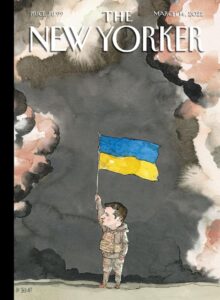 Vladimir Putin’s aggression against Ukraine, and Ukraine’s resistance has confirmed some old assumptions, shattered prevalent illusions, and led to a remarkable response by the democracies. It also offers yet another example of the disastrous consequences of antisemitism that emerged in the Soviet Union and has persisted in the decades since its demise.[1]
Vladimir Putin’s aggression against Ukraine, and Ukraine’s resistance has confirmed some old assumptions, shattered prevalent illusions, and led to a remarkable response by the democracies. It also offers yet another example of the disastrous consequences of antisemitism that emerged in the Soviet Union and has persisted in the decades since its demise.[1]
Putin justified his aggression against Ukraine with a lie. Ukraine, he said, had to be “de-Nazified.”[2] Ukraine today is the only state in the world besides Israel that has a President and a Foreign Minister who are Jewish. Accusing political opponents within, liberal democracies outside the Soviet bloc, and Israelis of being fascists and Nazis is a lie with deep roots in the history of the Soviet Union’s foreign policy after World War II. In the anticosmopolitan and antisemitic purges of 1949 to 1953, the Soviet Union hurled the accusation at Communists who supported the state of Israel, and at political opponents who rejected the Communist one-party. During the Cold War, the Soviet Union repeatedly denounced the United States and West Germany as fascist or Nazi. In 1961, when East Germany built the Berlin Wall–a wall that turned that country into a prison with seventeen million inmates–it described it as “the anti-fascist protection wall.”[3]
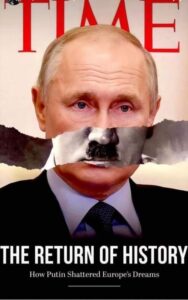 In 1967, Soviet Ambassador Nikolai Fedorenko at the United Nations described Israel’s military operations as examples of “fascist aggression.” During the Yom Kippur War of 1973, his successor, Jakob Malik compared Israel’s response to the Arab state attack to Nazi aggression during World War II in Europe.[4] The Israeli as Nazi canard spread to the radical left around the world. On the West German far left, it served to justify terrorist attacks against Israelis as a form of revolutionary anti-fascism. Such falsehoods about Israeli democracy played a role in Islamist and radical leftist attacks on Israel.[5]
In 1967, Soviet Ambassador Nikolai Fedorenko at the United Nations described Israel’s military operations as examples of “fascist aggression.” During the Yom Kippur War of 1973, his successor, Jakob Malik compared Israel’s response to the Arab state attack to Nazi aggression during World War II in Europe.[4] The Israeli as Nazi canard spread to the radical left around the world. On the West German far left, it served to justify terrorist attacks against Israelis as a form of revolutionary anti-fascism. Such falsehoods about Israeli democracy played a role in Islamist and radical leftist attacks on Israel.[5]
This reversal and transformation of the meaning of antifascism from what it meant during the years before and during World War II and the Holocaust was consequential. It lent apparent legitimacy to what were, in fact, antisemitic and false conspiracy theories about the policies of Israel. Sadly, the Soviet Union achieved great success with its “Israeli as Nazi” propaganda. Associating attacks on the Jewish state with the language of antifascism comprised a crucial chapter in the reemergence and renewed respectability of antisemitism in the international radical left during the Cold War. So, it is not at all surprising that Putin, whose roots lie in the Soviet era KGB intelligence services, denounced Ukraine as a state of Nazis and fascists.
Putin’s aim to “de-Nazify” Ukraine has had predictable and grave consequences. They are evident on our TV, computer and smart phone screens as missiles and artillery shells—and cluster bombs—crash into Ukrainian civilian areas—just as they did in Aleppo and other cities in Syria not so long ago. The Nazi accusation is enormously dangerous because, for civilized humanity, Nazism represents absolute and radical evil. Hence, if, you describe your enemy or adversary as a Nazi and assert that the Ukrainians used their rights as citizens to vote for Nazi leaders, then those civilians are also guilty of complicity in this Nazism. Thus, the cruise missiles and artillery shells crashing into civilian homes and apartment buildings in these days are, from Putin’s perspective, part of a noble battle against a Nazified Ukraine. The accusation leads to a policy that abolishes the distinction between soldiers and civilians in an era in which modern weaponry makes that distinction possible. This mendacious and corrupt version of antifascism serves as a justification for viewing the civilian population of Ukraine as a legitimate military target. It serves as an immoral justification for what international law now recognizes as war crimes.
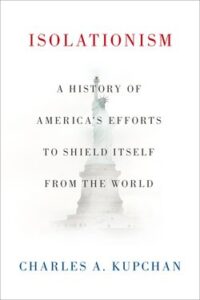 Putin’s aggression and the failure of deterrence to prevent it, reminds us of the follies of isolationism. The Nazi appeaser Charles Lindbergh in the 1930s and Putin admirer Donald Trump both raised the slogan “America First.” Lindbergh did not want the United States to engage in the war in Europe, and Trump raised questions about whether the United States would make good on its NATO treaty obligations. The core American lesson learned from World War I and World War II remains valid: it is a vital national security interest of the United States to prevent the domination of the European continent by a dictatorship of any sort and especially of one antagonistic to the values and interests of the United States. Every president after the Second World War, apart from Trump, agreed that the United States would continue the revolution in American foreign relations begun by Franklin Roosevelt and affirmed by every president since—with Trump excepted—that the United States would remain a military and political presence in European to deter a possible attack or deflect political pressure from the Soviet Union. The West’s victory in the Cold War led to a certain complacency about continuing robust military spending. Putin’s aggression has reminded us of the wisdom and necessity to maintain a strong trans-Atlantic alliance.
Putin’s aggression and the failure of deterrence to prevent it, reminds us of the follies of isolationism. The Nazi appeaser Charles Lindbergh in the 1930s and Putin admirer Donald Trump both raised the slogan “America First.” Lindbergh did not want the United States to engage in the war in Europe, and Trump raised questions about whether the United States would make good on its NATO treaty obligations. The core American lesson learned from World War I and World War II remains valid: it is a vital national security interest of the United States to prevent the domination of the European continent by a dictatorship of any sort and especially of one antagonistic to the values and interests of the United States. Every president after the Second World War, apart from Trump, agreed that the United States would continue the revolution in American foreign relations begun by Franklin Roosevelt and affirmed by every president since—with Trump excepted—that the United States would remain a military and political presence in European to deter a possible attack or deflect political pressure from the Soviet Union. The West’s victory in the Cold War led to a certain complacency about continuing robust military spending. Putin’s aggression has reminded us of the wisdom and necessity to maintain a strong trans-Atlantic alliance.
Putin’s war has reanimated the fundamental purpose of the Western alliance and reminded us of the need for our own security to preserve political democracies and market economies in Europe. Doing so is the cornerstone of American policies around the world. The United States endured defeats in Vietnam and Afghanistan, but its vital national security interests were not undermined. The same would not be the case if the United States were driven out of Europe, or if democracies in Europe were replaced by regimes subordinate to Putin’s Russia. While the United States seeks to defend a liberal world order around the world, the moral and political core of our alliances remains with those countries in Europe who continue to share our commitments to liberal democracy. The United States remains the indispensable power, the only one with the will and the power to lead the democracies. However, Putin’s aggression has shocked Europe into the long overdue recognition that it must combine its economic power with greater military strength.
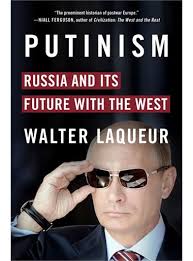 The Russian invasion has confirmed the central causal impact of ideology on politics. Putin and Putinism is a mixture of yearning for Soviet era global power, Russian nationalism, resentments about the end of the Cold War, and contempt for liberal democracy.[6] For many years, criticism of the underestimation of the ideological dimension has become a commonplace in the scholarship on the history of Nazism and Communism, and of political and international history in general. It has found far too little resonance government policies, due generally to excessive causal significance to the impact of economic interests. The result, in recent years led to neglect of the beliefs of leaders, such as Putin.
The Russian invasion has confirmed the central causal impact of ideology on politics. Putin and Putinism is a mixture of yearning for Soviet era global power, Russian nationalism, resentments about the end of the Cold War, and contempt for liberal democracy.[6] For many years, criticism of the underestimation of the ideological dimension has become a commonplace in the scholarship on the history of Nazism and Communism, and of political and international history in general. It has found far too little resonance government policies, due generally to excessive causal significance to the impact of economic interests. The result, in recent years led to neglect of the beliefs of leaders, such as Putin.
The events of the past two weeks recall two other famous moments when leaders in Britain and in the Soviet Union failed to take Hitler’s publicly expressed ideology seriously, and then when their illusions were shattered. Britain adopted a policy of appeasement to Hitler in part because Prime Minister Neville Chamberlain believed Hitler’s promises that he only sought to incorporate the German speakers of the Sudetenland into a larger Germany.[7] Despite Hitler’s declared aims of seeking a continental empire in Eastern Europe, Chamberlain chose to believe that the Nazi leader was focused only on protecting the rights of the German minority from persecution by the non-German Czech majority, and on creating a nation of German speakers. When, in March 1939, Hitler ordered the German armies to invade the remainder of Czechoslovakia, Chamberlain and French President Eduard Daladier, along with the entire British and French political class, understood that Hitler had lied in Munich, that his appetite for aggression had been whetted, not appeased, and that therefore the assumptions on which appeasement rested had been illusory.
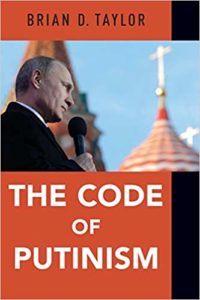 Putin also shrouds a policy of imperialist expansion with the language of protecting minority rights. For the past twenty years, he has been frank and public in his view that the collapse of the Soviet Union was “the greatest catastrophe of the twentieth century” (that is, worse than World War II and the Holocaust), and that the Soviet era imperial order in Eastern Europe needed to be restored. As was the case in the 1930s, the democracies in the past two decades did not take seriously enough warnings from leaders in Eastern Europe about Putin’s views.[8] In the 1930s and in the first decades of the twenty-first century, leaders underestimated the power of ideology and the perils of not taking it seriously as a guide to policy.
Putin also shrouds a policy of imperialist expansion with the language of protecting minority rights. For the past twenty years, he has been frank and public in his view that the collapse of the Soviet Union was “the greatest catastrophe of the twentieth century” (that is, worse than World War II and the Holocaust), and that the Soviet era imperial order in Eastern Europe needed to be restored. As was the case in the 1930s, the democracies in the past two decades did not take seriously enough warnings from leaders in Eastern Europe about Putin’s views.[8] In the 1930s and in the first decades of the twenty-first century, leaders underestimated the power of ideology and the perils of not taking it seriously as a guide to policy.
From 1939 to 1941, when he signed a non-aggression pact with Hitler, Joseph Stalin own Marxist inspired underestimation of ideological factors, led to catastrophe. In spring 1941,Stalin was certain that deliveries of Soviet raw materials and foodstuffs to Nazi Germany would give Hitler irresistible economic incentives to avoid war with the Soviet Union and to focus instead on war with Britain and France. Why, after all, would Hitler invade a country that was sending him massive amounts of the resources he needed for his war against Britain and France?
In the weeks preceding the German invasion of the Soviet Union in spring 1941, Stalin’s own intelligence services as well as the intelligence services of Britain and France, were warning him of the impending German attack. He refused to believe them. Like Chamberlain three years earlier, Stalin also failed to grasp the causal import of Hitler’s ideological passions about Lebensraum—living space—in Eastern Europe and the Soviet Union. The Stalinist materialist illusion crashed to the ground with catastrophic consequences when the Soviet Union was surprised by Hitler’s invasion of June 22, 1941.
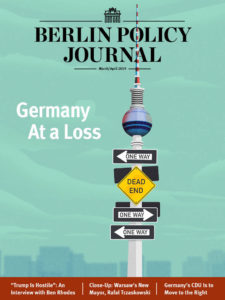 This same belief that economic relations would supersede ideological passions has been evident in the policies of the German government of the past twenty years under both Social Democrat Gerhard Schroeder, and Christian Democrat Angela Merkel. Both hoped that economic incentives would be sufficient to deter Putin from engaging in aggression against Ukraine and convince him to accept the post Cold War order of independent states in Eastern Europe. They appeared not to have recalled the failures of Stalin’s own economic deterministic thinking.
This same belief that economic relations would supersede ideological passions has been evident in the policies of the German government of the past twenty years under both Social Democrat Gerhard Schroeder, and Christian Democrat Angela Merkel. Both hoped that economic incentives would be sufficient to deter Putin from engaging in aggression against Ukraine and convince him to accept the post Cold War order of independent states in Eastern Europe. They appeared not to have recalled the failures of Stalin’s own economic deterministic thinking.
The German illusion about Putin’s Russia was most clear in the decision to proceed with the deal to develop the Nordstream II gas pipeline. The pipeline was built in the Baltic Sea. If it were to be completed and went into operation, Ukraine would be deprived of revenues it has received from pipelines that traverse its territory, while Germany would expand its dependence on Russian gas and end up doing so in the hope that Russian dependence on the German market would serve to moderate Putin’s foreign policy.
Yet the phrase “illusion” is perhaps too kind. Nordstream II was evidence of something else, something more sinister, namely the close cooperation of two former intelligence agents of the Soviet era, Vladimir Putin of the KGB, and Matthias Warnig of the East German Stasi. Putin and Warnig combined to create a lever of influence over Germany via gas supplies. While the East German Communist regime collapsed and its fearsome intelligence agency, the Stasi (short for State Security Service), was dissolved, the emergence of former Stasi agent Warnig as managing director of Nordstream provided public evidence of the ability of ex-Stasi agents to use their networks and connections to Russia to reincarnate themselves as well-paid business executives.[9] Putin understood how to mobilize Germany’s good intentions and desires to make amends for the crimes of the Nazi regime against the Soviet Union in World War II in the service of his own intentions to upset the order of peace and security in Europe. Warnig was happy to provide advice about his contacts in Russia. German banks supplied the financing.
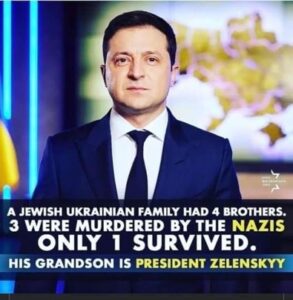 Since 2005, soon after his time in office as German Chancellor ended, Social Democrat Gerhard Schroeder joined the board of directors of Gazprom, the Russian company overseeing the Nordstream II project. Germany’s significant economic interests in Nordsteam II discouraged criticism of Putin. Instead, they constituted a lobby in German politics that offered “understanding” and apologies for his complaints about supposed mistreatment by the West. This huge business deal consummated between former agents of the KGB and the Stasi comprised the grubby material base of illusions about Putin and Putinism. To put it in Marxist language, Nordstream II served as the material base for the superstructure of ideological illusions about peace and good Russian-German relations.
Since 2005, soon after his time in office as German Chancellor ended, Social Democrat Gerhard Schroeder joined the board of directors of Gazprom, the Russian company overseeing the Nordstream II project. Germany’s significant economic interests in Nordsteam II discouraged criticism of Putin. Instead, they constituted a lobby in German politics that offered “understanding” and apologies for his complaints about supposed mistreatment by the West. This huge business deal consummated between former agents of the KGB and the Stasi comprised the grubby material base of illusions about Putin and Putinism. To put it in Marxist language, Nordstream II served as the material base for the superstructure of ideological illusions about peace and good Russian-German relations.
Chancellor Angela Merkel, though more skeptical of Putin than her predecessor Schroeder, did not cancel Nordstream II. At the same time, she refused to make significant increases in German defense spending despite Putin’s annexation of Crimea and his aggression in Donetsk and Donbass in Ukraine in 2014. While Merkel and the German people warmly welcomed over a million refugees, mostly from Syria, Putin did not become an international pariah for ordering the Russian air force to bomb Syrian cities to crush the opposition to the Assad dictatorship. That bombing campaign was a major cause of the massive refugee flow out of Assad’s Syria. Putin paid no or only a mild cost in Germany for his campaigns of aggression. Even worse, during the Trump presidency, he received praise from the President of the United States.
It is not true that no one in Germany saw the looming dangers.[10] It was Putin’s invasion of Ukraine, and the brave Ukrainian resistance, not a previous massive rethinking within Germany and Europe, that revealed the hopes and wishes of the past two decades to be illusions.
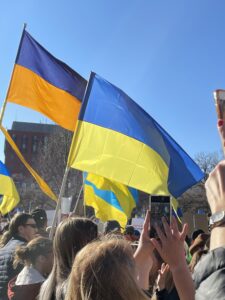 Putin’s fictional world of threats recalls Hitler’s imaginary world. Putin, like Hitler, imagines a world of military threats that did not and do not exist. Not one of the states bordering on Nazi Germany posed a military threat to it before World War II; none wanted a war. Hitler alone started it. In recent years, Ukraine posed no military threat to Russia at all. In 1993, it agreed to abandon its nuclear weapons under the Budapest Agreements, which were supposed to be accompanied by security guarantees that were subsequently not fulfilled.
Putin’s fictional world of threats recalls Hitler’s imaginary world. Putin, like Hitler, imagines a world of military threats that did not and do not exist. Not one of the states bordering on Nazi Germany posed a military threat to it before World War II; none wanted a war. Hitler alone started it. In recent years, Ukraine posed no military threat to Russia at all. In 1993, it agreed to abandon its nuclear weapons under the Budapest Agreements, which were supposed to be accompanied by security guarantees that were subsequently not fulfilled.
In the weeks immediately preceding the Russian invasion, Putin turned facts and truth upside down by warning of a threat the Ukraine supposedly posed to Russia.[11] Hitler began his war with similar misinformation and projections about Poland, absurdly claiming that Poland posed a military threat to Nazi Germany. On September 1, 1939, Hitler began the invasion of Poland with what became a famous lie. “At 5:45 this morning, we [Germany] returned fire.” The Poles were not firing; the Germans had staged a fake attack on a border outpost. One of the major accomplishments of the Biden administration has been to reveal Putin’s lies and tricks before he presented them to the public, thus reducing his ability to do what Hitler did, namely to project responsibility onto Ukraine for the war he had begun.
It is true, however, that the existence of a free, independent, and democratic Ukraine does pose a threat to Putin and Putinism, though not the one of his imagination. The nature of the threat was the same as that that Western Europe posed to the Soviet Union in the Cold War. It was not a threat of military invasion or attack. Rather, it was the existence of a group of successful market and social democratic market economies in combination with liberal democracy, the rule of law, free press, autonomous universities, and the peaceful transfer of power through elections. It was the attractiveness of the West, its freedoms, it culture, its economic dynamism, its welfare states, and its democracy, not only or primarily its military power, that stood in contrast to the failed Communist experiment.[12]
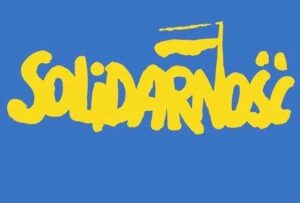 In recent years, the existence of an independent and democratic Ukraine posed a similar threat to Putin’s Russia. It too was an example of comparative economic success and political freedom that served as an alluring alternative to the Putin dictatorship. The dissident intellectuals, activists, and political figures of the 1970s and 1980s–figures such as Vaclav Havel in Czechoslovakia, and Leszek Kolakowski and Adam Michnik in Poland–argued that democracy in Western Europe was a threat to the existence of dictatorship in the Soviet bloc, and that those dictatorships were themselves a threat to peace. The existence of human rights and democracy in Ukraine on the borders of Russia, not imaginary Nazis, or non-existent military threats, was the greatest danger for a dictatorship that controlled the media, jailed, or killed political opponents.
In recent years, the existence of an independent and democratic Ukraine posed a similar threat to Putin’s Russia. It too was an example of comparative economic success and political freedom that served as an alluring alternative to the Putin dictatorship. The dissident intellectuals, activists, and political figures of the 1970s and 1980s–figures such as Vaclav Havel in Czechoslovakia, and Leszek Kolakowski and Adam Michnik in Poland–argued that democracy in Western Europe was a threat to the existence of dictatorship in the Soviet bloc, and that those dictatorships were themselves a threat to peace. The existence of human rights and democracy in Ukraine on the borders of Russia, not imaginary Nazis, or non-existent military threats, was the greatest danger for a dictatorship that controlled the media, jailed, or killed political opponents.
The most important transformation in foreign policy of the past ten days has taken place in Germany. Chancellor Olaf Scholz’s welcome speech to the German parliament on February 22, 2022, broke with thirty years of German Social Democratic reticence to speak frankly about Putin’s dictatorship. This reticence has longstanding, deep roots in German “Ostpolitik”–Eastern policy. It was a sincere and important effort to honestly recall and make amends for the crimes of Nazi Germany on the Eastern Front in World War II. For Scholz, who emerged from that tradition, to denounce Putin as “the warmonger” and then announce long-overdue increases in German defense spending brought an end to the era of illusions in Germany about Putin in a way that probably only as a left-of-center political leader could.
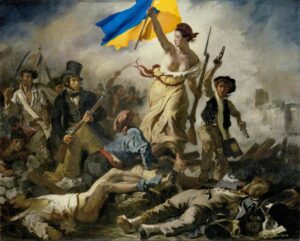 Just as right-of-center figures like de Gaulle could end the French war in Indochina, or Nixon was able to make the opening to Mao’s China, so the fact that Scholz, along with Foreign Minister Annalena Baerbock, a member of the Green Party, took the decisions to make the German turn, had made doing so even more politically consequential and supported across the political spectrum. This is not another instance of conservatives denouncing leftists for turning a blind eye to national security threats. Rather, Scholz and Baerbock are voices of Social Democracy and the post-1960s-left rediscovering their connections to liberal principles. This revolution in German intellectual and political life, was percolating as well in the Green Party, whose leaders drew on the language of human rights and liberal democracy to their criticism of Putin’s dictatorship.
Just as right-of-center figures like de Gaulle could end the French war in Indochina, or Nixon was able to make the opening to Mao’s China, so the fact that Scholz, along with Foreign Minister Annalena Baerbock, a member of the Green Party, took the decisions to make the German turn, had made doing so even more politically consequential and supported across the political spectrum. This is not another instance of conservatives denouncing leftists for turning a blind eye to national security threats. Rather, Scholz and Baerbock are voices of Social Democracy and the post-1960s-left rediscovering their connections to liberal principles. This revolution in German intellectual and political life, was percolating as well in the Green Party, whose leaders drew on the language of human rights and liberal democracy to their criticism of Putin’s dictatorship.
The German dream of the past half century, especially but not only on the left, was that power politics and the use of force was a thing of the past, or if it persisted, it was a dirty business to be engaged in only by the British, French, Israelis, and Americans. Germany was going to be the economic giant but a political pygmy. After February 27, that self-definition became a thing of the past, thanks to Putin’s aggression, Ukraine’s and Zelensky’s resistance, and a German political leadership that understood that past assumptions had been disproven. Scholz recognized that Putin’s effort to restore Russian dominance in Eastern Europe was a threat to freedom and democracy in Europe in general, that Germany could no longer substitute wish-fulfilment for recognition that the world remained a dangerous place, and that democracy under threat required the traditional instruments of power politics, that is, strong armed forces.
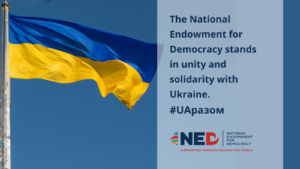 As the war has not gone has planned, Putin’s miscalculations have emerged, Russia’s isolation has deepened, the number of civilians killed intentionally grows, and Putin makes threats of using nuclear weapons, officials speculate that Putin is no longer mentally stable. Whether or not that is the case, like all dictators, he lives in a world of his own, surrounded by subservient toadies who tell him only what he wants to hear. This absence of freedom and critical discussion at the top is one reason dictatorships are so dangerous. When they make blunders, they are enormous. Hitler, Stalin, Saddam Hussein are among many whose view of the world obscured realities.
As the war has not gone has planned, Putin’s miscalculations have emerged, Russia’s isolation has deepened, the number of civilians killed intentionally grows, and Putin makes threats of using nuclear weapons, officials speculate that Putin is no longer mentally stable. Whether or not that is the case, like all dictators, he lives in a world of his own, surrounded by subservient toadies who tell him only what he wants to hear. This absence of freedom and critical discussion at the top is one reason dictatorships are so dangerous. When they make blunders, they are enormous. Hitler, Stalin, Saddam Hussein are among many whose view of the world obscured realities.
That said, Putin’s gamble was reckless but not crazy.[13] We don’t know which element of Western disarray was figured most prominently in his calculations. The above-mentioned German illusions were important. Britain’s decision to leave the European Union offered an important sign of Western fragmentation and disunity. Right-wing nationalists, who shared Putin’s hatred of homosexuality and disdain for an independent judiciary were in power in Poland and Hungary. Right-wing parties in France and Britain offered kind words to Putin, and those in France even received financial donations from Putin’s government. The four years of Donald Trump in the White House indicated that there were millions of Americans who responded enthusiastically to the isolationist appeals of “America First” and disdain for Europe and Europeans. The attack on the U.S. Capitol of January 6, 2020, and Trump’s continued lies about the “stolen election” offered evidence of a United States so badly divided at home, primarily by right-wing paranoia, that it raised questions about whether the United States would continue to play a world role.
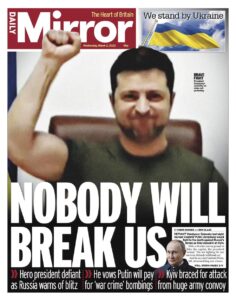
Screen grab
In time we will have a clearer grasp of how Putin assessed the world. It is plausible that he saw the United States, after the wars in Iraq and Afghanistan to be tired of foreign involvements and preoccupied with domestic issues. It was a country so willing to accept misinformation that many of the million among its citizens who have died of the Coronavirus, died after safe and effective vaccines became available, but were rejected and under-utilized. President Biden and Secretary of State Antony Blinken were determined to rebuild America’s alliances with Europe, yet most of the talk in Washington was about the threat from China. As the United States under several administrations reduced its role in the Middle East, Russia began filling the resulting vacuum, especially in the Soviet Union’s closest Arab ally, Syria. Iran appeared to be succeeding in its own nuclear ambitions, and the Biden administration gave the impression that an American attack on its nuclear installations was not an option. Relations with Communist China were remarkably close. The political winds in Germany of the past half century suggested angry words would be the only response to an invasion of Ukraine. The United States had no treaty obligation to come to Ukraine’s defense as the latter was not a member of NATO. Fortunately, it was led by Volodymyr Zelensky, a former comedian who achieved fame Ukrainian TV by playing the role of Ukraine’s President before playing the adult role in the real world. Compared to Putin, what could Zelensky know about conducting a war? Hence from Putin’s point of view, February 2022 appeared to be an opportune, not crazy, moment to strike.
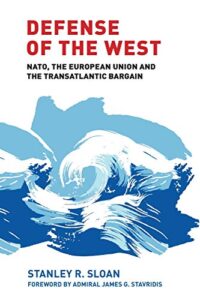 As we have seen since February 24th, Putin miscalculated. His greatest miscalculation was about Ukraine itself, followed closely by one about the European democracies. He did not expect he would have a difficult war on his hands. He did not anticipate that his invasion would create a unity in the Western Alliance it has not seen for decades, the revolution in German foreign and military policy, or the outpouring of rage in Europe and around the world. Putin underestimated the skill of both President Biden and Secretary of State Antony Blinken, both of whom deserve enormous credit for repairing the damage done by the Trump administration to our alliances and our standing in the world. Putin grossly underestimated Volodymyr Zelensky and the Ukrainian government and people. But he has not underestimated, so far, the unwillingness of NATO to intervene directly in a war in Ukraine, though he may have underestimated the size of the American and NATO military resupply effort.
As we have seen since February 24th, Putin miscalculated. His greatest miscalculation was about Ukraine itself, followed closely by one about the European democracies. He did not expect he would have a difficult war on his hands. He did not anticipate that his invasion would create a unity in the Western Alliance it has not seen for decades, the revolution in German foreign and military policy, or the outpouring of rage in Europe and around the world. Putin underestimated the skill of both President Biden and Secretary of State Antony Blinken, both of whom deserve enormous credit for repairing the damage done by the Trump administration to our alliances and our standing in the world. Putin grossly underestimated Volodymyr Zelensky and the Ukrainian government and people. But he has not underestimated, so far, the unwillingness of NATO to intervene directly in a war in Ukraine, though he may have underestimated the size of the American and NATO military resupply effort.
To return to the point made at the outset about who is and is not a fascist or a Nazi, it bears noting that this week the Russian parliament passed a law criminalizing protest against this war with jail terms of up to fifteen years. Putin has brought fascism of a new type to Russia. Ukraine in 2022 has become the country in Europe which, as much as any other since 1945, represents the actual traditions of democratic antifascism.
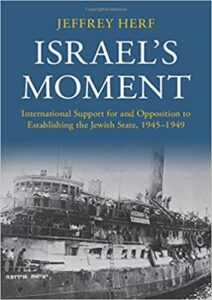 Jeffrey Herf, Distinguished University Professor, Department of History. He examined the “Nazi” accusation in Soviet era propaganda in Undeclared Wars with Israel: East Germany and the West German Far Left, 1967-1989 (Cambridge University Press, 2016). His most recent book, Israel’s Moment: International Support for and Opposition to Establishing the Jewish State, 1945-1949, is being published this month by Cambridge University Press.
Jeffrey Herf, Distinguished University Professor, Department of History. He examined the “Nazi” accusation in Soviet era propaganda in Undeclared Wars with Israel: East Germany and the West German Far Left, 1967-1989 (Cambridge University Press, 2016). His most recent book, Israel’s Moment: International Support for and Opposition to Establishing the Jewish State, 1945-1949, is being published this month by Cambridge University Press.
The above post is based on delivered on March 2nd to a webinar organized by the History Undergraduate Association, Janus Journal, and the European Caucus of the Department of History, University of Maryland,
[1] On this see Statement on War in Ukraine by Scholars of Genocide, Nazism and World War II (February 27, 2022): https://jewishjournal.com/news/worldwide/345515/statement-on-the-war-in-ukraine-by-scholars-of-genocide-nazism-and-world-war-ii/ . It reads in part: “We strongly reject the Russian government’s cynical abuse of the term genocide, the memory of World War II and the Holocaust, and the equation of the Ukrainian state with the Nazi regime to justify its unprovoked aggression. This rhetoric is factually wrong, morally repugnant and deeply offensive to the memory of millions of victims of Nazism and those who courageously fought against it, including the Russian and Ukrainian soldiers of the Red Army.” Statement on War in Ukraine by Scholars of Genocide, Nazism and World War II (February 27, 2022): https://jewishjournal.com/news/worldwide/345515/statement-on-the-war-in-ukraine-by-scholars-of-genocide-nazism-and-world-war-ii/
[2] Max Fisher, “Putin’s Case for War Annotated,” New York Times, February 24, 2022: https://www.nytimes.com/2022/02/24/world/europe/putin-ukraine-speech.html?fbclid=IwAR2cpA9EZKmNK8UwcYZFrAFx9aWtZL8BsmNcVLWxpx6Va1DM4yNnh54E5F4
 [3] Jeffrey Herf, Divided Memory: The Nazi Past in the Two Germanys (Cambridge, MA.: Harvard University Press, 1997), 163.
[3] Jeffrey Herf, Divided Memory: The Nazi Past in the Two Germanys (Cambridge, MA.: Harvard University Press, 1997), 163.
[4] On Soviet descriptions of Israel and Israelis as Nazis see Jeffrey Herf, Undeclared Wars Against Israel: East Germany and the West German Far Left, 1967-1989 (Cambridge: Cambridge University Press, 2016), 44, and 247-249 ; and Robert Wistrich, “The Soviet War Against Zion,” in his A Lethal Obsession: Anti-Semitism from Antiquity to the Global Jihad (New York: Random House, 2010), 129-153.
[5] On Soviet descriptions of Israel and Israelis as Nazis see Jeffrey Herf, Undeclared Wars Against Israel: East Germany and the West German Far Left, 1967-1989 (Cambridge: Cambridge University Press, 2016); and Robert Wistrich, “The Soviet War Against Zion,” in his A Lethal Obsession: Anti-Semitism from Antiquity to the Global Jihad (New York: Random House, 2010), 129-153.
[6] The scholarship on Putin’s ideology is now significant. See most recently, Kate C. Langdon and Vladimir Tismaneanu, Putin’s Totalitarian Democracy: Ideology, Myth and Violence in the Twenty-First Century (Switzerland: Palgrave/Macmillan, 2020).
[7] The scholarship on the diplomacy of the 1930s is vast. See recently, Zara Steiner, The Triumph of the Dark: European International History 1933-1939 (Oxford: Oxford University Press, 2011).
[8] Lally Weymouth, “How two Baltic president view a war they’ve long warned was coming,” Washington Post (March 6, 2022): https://www.washingtonpost.com/outlook/2022/03/03/russia-ukraine-baltic-states/; Carlos Lozada, “How to Read Vladimir Putin,” Washington Post (March 6, 2022): https://www.washingtonpost.com/outlook/2022/03/03/putin-essays/?itid=sf_book-party
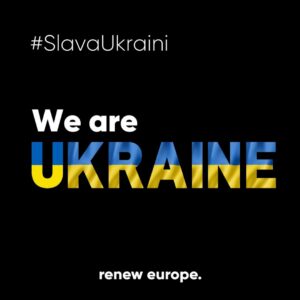 [9] Alexander Wulfers, “Nord-Stream 2 Chef: Wie Matthias Warnig der mächtigste Deutsche in Russland wurde,” Frankfurter Allgemeine Zeitung (March 3, 2022): https://www.faz.net/aktuell/wirtschaft/nord-stream-2-chef-aufstieg-und-fall-des-matthias-warnig-17852494.html?premium#void
[9] Alexander Wulfers, “Nord-Stream 2 Chef: Wie Matthias Warnig der mächtigste Deutsche in Russland wurde,” Frankfurter Allgemeine Zeitung (March 3, 2022): https://www.faz.net/aktuell/wirtschaft/nord-stream-2-chef-aufstieg-und-fall-des-matthias-warnig-17852494.html?premium#void
[10] See, for example, Richard Herzinger’s German language website “We hold these truths…”: https://herzinger.org/
[11] Max Fisher, “Putin’s Case for War Annotated,” New York Times, February 24, 2022: https://www.nytimes.com/2022/02/24/world/europe/putin-ukraine-speech.html?fbclid=IwAR2cpA9EZKmNK8UwcYZFrAFx9aWtZL8BsmNcVLWxpx6Va1DM4yNnh54E5F4
[12] See Stephen Kotkin, Armageddon Averted: The Soviet Collapse, 1970-2000 (New York: Oxford University Press, 2001, 2008).
[13] On Putin’s miscalculations, see the military and diplomatic historian Lawrence Freedman’s essays at his substack page here: https://substack.com/profile/69709932-lawrence-freedman; For his “A Reckless Gamble,” (February 25, 2022): https://samf.substack.com/p/a-reckless-gamble?s=r







